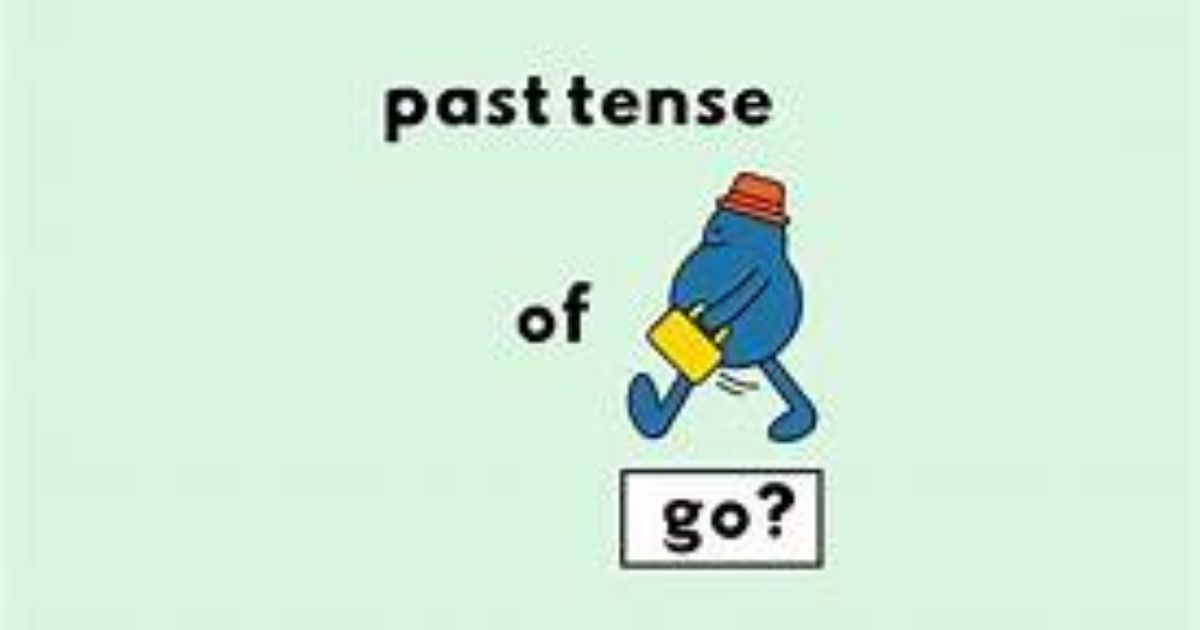English grammar can be puzzling at times, especially when it comes to irregular verbs like “go.” If you’ve ever wondered about its past tense, you’re not alone. But fear not! This guide will help you understand everything about Past Tense of go form, “went,” in a clear and simple way.
By the end, you’ll know when and how to use “go” and “went” in your sentences confidently. Let’s dive in!
Understanding the Past Tense of go
In English, verbs often change form when we talk about the past. This is known as the past tense. While some verbs follow a predictable pattern (like adding “-ed” to the end), others, like “go,” take a completely different form.
The word “go” is an irregular verb, meaning it doesn’t follow the usual rules for past tense. Instead, it transforms into a new word entirely: “went.”
What It Means
Here’s what you need to know about the two forms of this verb:
- Go (Present): This is the action of moving from one place to another or starting a journey. It’s used for events happening now or in the near future.
- Went (Past): This is the past tense of “go.” It describes movement or travel that has already happened.
In simple terms:
- I go means I am traveling or moving now.
- I went means I traveled or moved in the past.
READ MORE: Loose vs Lose: What’s the Difference and When to Use Each?
Why “Went”?
The word “went” might seem unrelated to “go,” but it has an interesting history. It comes from an Old English word, “wendan,” which means to turn or travel. Over time, it became the past tense of “go.”
Examples
| Present | Past | Example |
| Go | Went | I go to school every day. |
| Yesterday, I went to a museum. | ||
| Go on a trip | Went on a trip | We go on a trip every summer. |
| Last summer, we went to the mountains. |
Imagine you’re telling a friend about your week:
- Present: I go to the library every Tuesday.
- Past: Last Tuesday, I went to the coffee shop instead.
Journey to the Past: Went
The word “went” is like a key that unlocks stories from the past. Whenever you’re talking about events or actions that happened before now, “went” is your go-to word.
Think of “went” as your storytelling companion. Whether you’re sharing about a fun trip, a daily routine, or even a small errand, “went” helps set the timeline for your story.
Example
Let’s say you’re describing a weekend adventure:
- Present: Every Saturday, I go to the park with my family.
- Past: Last Saturday, we went hiking in the hills instead.
Another example:
- Present: She often goes shopping for fresh vegetables.
- Past: Last month, she went to a farmer’s market and loved it.
Notice how “went” automatically makes it clear that the action is in the past.
Present vs. Past: A Quick Recap
Sometimes it’s easy to confuse present and past tense. To avoid mistakes, think about when the action happened:
- If it’s happening now or regularly, use go.
- If it happened earlier, use went.
When you’re not sure, ask yourself: “Am I talking about now, or am I talking about the past?”
Examples
| Present Action | Past Adventure | Example |
| I go to the store every Saturday. | Last Saturday, I went shopping. | Today, I go again to buy groceries. |
| She goes to the gym daily. | Last year, she went swimming. | Now, she goes to a new gym in her area. |
| We go hiking every fall. | Last fall, we went to the lake. | This year, we go somewhere different. |
Choosing the Right Expression
Using the right word—go or went—can make your sentences more clear and effective. Choosing the correct one is about timing. Are you talking about now or the past?
Think of this as painting a picture:
- Go is for the bright, current strokes.
- Went adds depth and shadows to your past experiences.
Examples
Here’s how to use them in different scenarios:
| Present Scenario | Past Happening | Example |
| They go to parties often. | Last night, they went dancing. | Tonight, they go to another celebration. |
| He goes to football practice. | Last year, he went to basketball practice. | Now, he goes to both sports practices. |
| I go to the doctor regularly. | Yesterday, I went for a check-up. | Today, I go for a follow-up appointment. |
Common Scenarios with “Go” and “Went”
Here are some everyday scenarios where you might mix up “go” and “went.” Let’s set things straight!
1. Talking About Your Day
- Correct: I went to the park this morning.
- Incorrect: I go to the park this morning.
Tip: If it already happened, always use “went.”
2. Telling Vacation Stories
- Correct: We went to Italy last summer.
- Incorrect: We go to Italy last summer.
3. Discussing Habits vs. One-Time Events
- Correct: She goes to yoga classes every Friday.
- Incorrect: She went to yoga classes every Friday.
Tip: Use “goes” for habits and “went” for specific past events.
Fun Practice Exercises
Want to test your skills? Try these exercises:
- Fill in the blank with “go” or “went”:
- I ______ to the beach last weekend.
- Every morning, I ______ for a jog.
- She ______ to the market yesterday.
- Rewrite the sentence in the correct tense:
- Last night, I go to a movie.
- Every Sunday, we went to church.
Answers:
- went, go, went
- Last night, I went to a movie. Every Sunday, we go to church.
Why Is This Important?
Understanding when to use “go” and “went” makes your communication clearer and more polished. These small changes can have a big impact, especially in writing.
Pro Tip: Always think about the time of the action. If it’s about now, use “go.” If it’s about the past, “went” is your best friend.
Conclusion
The past tense of “go” is went—simple as that! While it may seem tricky at first, practicing with real examples can help you feel more confident.
Keep practicing, and soon, using “go” and “went” will feel as natural as breathing. So, next time someone asks you about the past tense of “go,” you can proudly say, “It’s went!”

Osbert is a skilled linguist and educator specializing in English grammar and vocabulary. With years of experience, he has dedicated his career to helping learners enhance their language skills. Osbert is passionate about simplifying complex grammar concepts and is the founder of EnglishInfoz.com, a platform focused on English language education.
